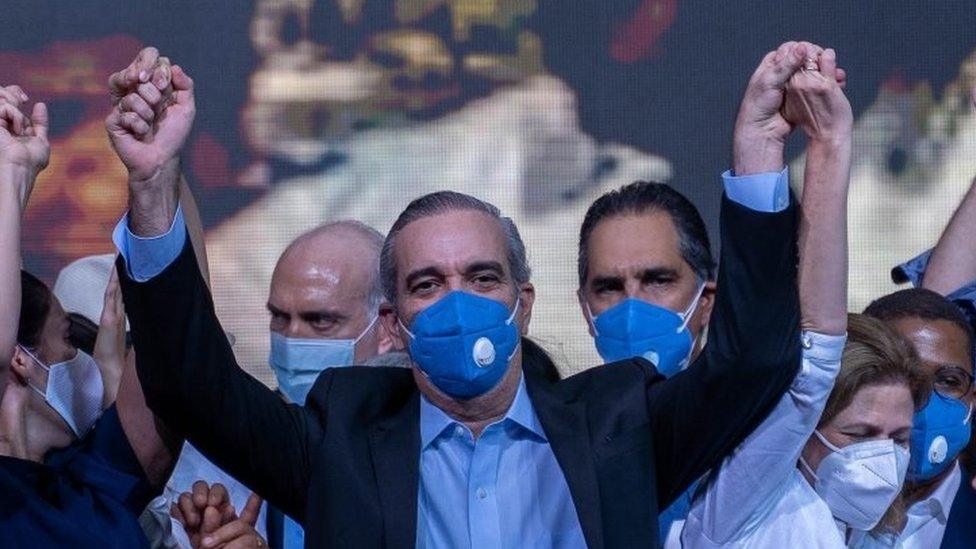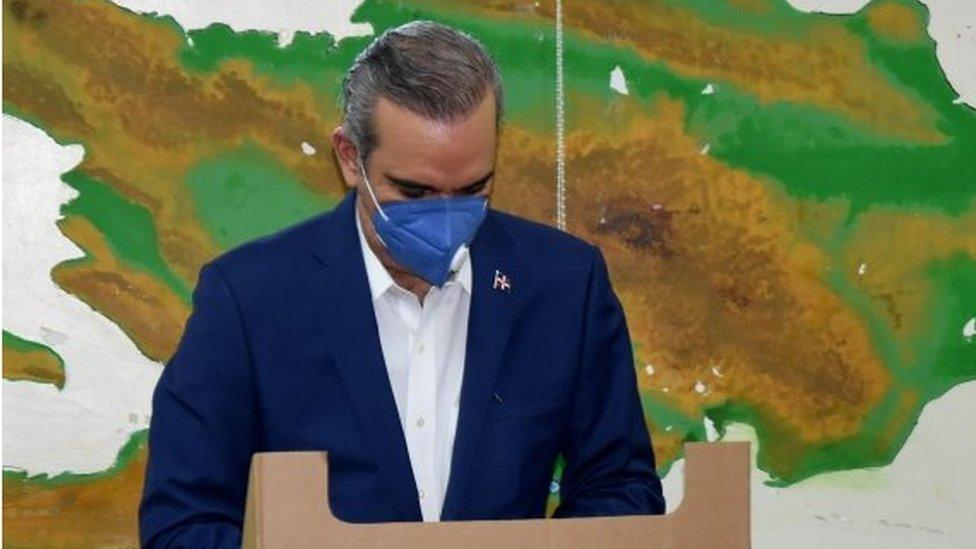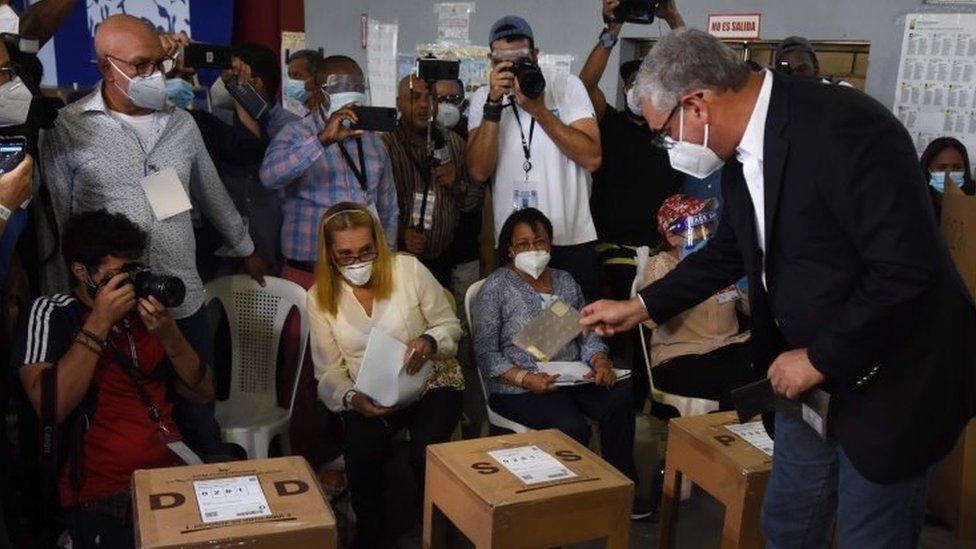Change in Dominican Republic as opposition wins presidency
- Published

Luis Abinader will replace Danilo Medina, whose party has been in power for 16 years
Early results in the presidential election in the Dominican Republic give the opposition candidate, Luis Abinader, an unassailable lead.
His two main rivals have conceded defeat and the outgoing president has congratulated Mr Abinader on his win.
His victory puts an end to 16 years in power of the centre-left Dominican Liberation Party (PLD).
Voter turnout was high despite the election being conducted during the coronavirus pandemic.
'We have a president-elect'
With about 60% of the votes counted, Luis Abinader of the Modern Revolutionary Party (PRM) had 53% of the votes.

Luis Abinader has won the top job on his second attempt
In second place is the candidate for the Dominican Liberation Party, Gonzalo Castillo, with 37% of the votes.
Mr Abinader needed to have more than 50% of the votes to stave off a second round of voting on 26 July.
While votes are still being counted, Mr Abinader's comfortable lead prompted both Mr Castillo and third-placed candidate Leonel Fernández to concede defeat.
Mr Castillo said that the official count "shows that there is an irreversible trend and that from now on we have a president-elect... Our congratulations to Mr Luis Abinader".

Gonzalo Castillo of the governing PLD party has conceded defeat
Outgoing President Danilo Medina, who has served two consecutive terms and could therefore not run for a third, said that democracy in the Dominican Republic had "emerged stronger" from the election and wished his successor every success.
Mr Abinader said that "all Dominicans had won by voting for change".
Opinion polls had predicted a victory for Mr Abinader after an acrimonious split in the governing Dominican Liberation Party.
Former President Leonel Fernández left the party, which had chosen Gonzalo Castillo as its presidential candidate, and ran for the presidency for the People's Force party.
He is currently in a distant third place with less than 9% of the vote.
Mr Abinader celebrated the early results with his supporters while urging them to await the official announcement from the electoral board.
He appealed for unity, saying that he owed his victory to the Dominican people, who he said had "all won tonight".
It is the second time Mr Abinader, a US-educated economist, ran for the top job in the Caribbean nation.
In 2016 he lost to Danilo Medina in the second round.
Some analysts think he benefitted from discontent among Dominicans with the way the government has handled the coronavirus pandemic.
The election was postponed from its original date in May because of the outbreak.
Challenges ahead
The Dominican Republic is one of the worst-affected countries in the Caribbean, with more than 37,000 confirmed cases and almost 800 deaths, according to a tally by Johns Hopkins University.
Mr Abinader and his wife were among those who tested positive for coronavirus and he had to temporarily stop campaigning while he recovered.
Local media reported that the election proceeded smoothly except for one incident in which a person was shot dead outside a polling station when an argument erupted between rival party supporters.
One of the main challenges for Mr Abinader in his new job will be to revive the country's tourism industry which has been battered by the travel restrictions imposed to curb the spread of Covid-19.
His own family operates major tourism projects in the Dominican Republic.